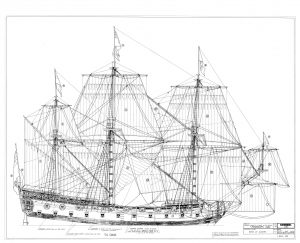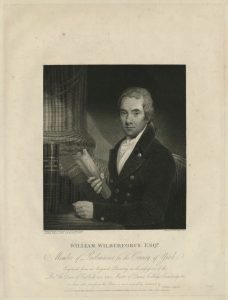slave trade
What the voyages of HMS Harwich reveal about the ‘instruments of empire’
23 April 1758
“AS ENGLAND pursued its campaigns in West Africa and the West Indies, its ships, sailors and soldiers traced the connections between the Jamaica garrison and the wider war. By their movements and actions, these instruments of empire bound the disparate regions of the Atlantic world to the slaving economy. The belligerent cruise of HMS Harwich offers a telling example,” writes Vincent Brown in his brilliant new book Tacky’s Revolt: The story of an Atlantic slave war.(1)
William Wilberforce introduces a Bill to outlaw the slave trade
12 May 1789
WILLIAM WILBERFORCE’s involvement in the abolition movement was undoubtedly motivated by his desire to put his evangelical Christian principles into action. Along with fellow members of the Clapham Sect – a group of social reformers who attended Holy Trinity Church on Clapham Common – he was repulsed by the trade in human beings, the greed and avarice of the traders and the moral bankruptcy of the planter-owners. It may come as a surprise, then, to find that his speech introducing his Bill to outlaw the slave trade is virtually free of moralising, Christian or otherwise. Instead, he takes a forensic, fact-based approach to dismantle the arguments of his opponents.


